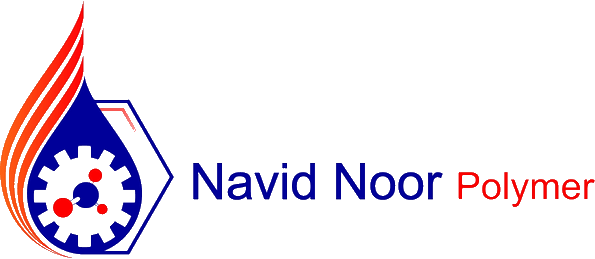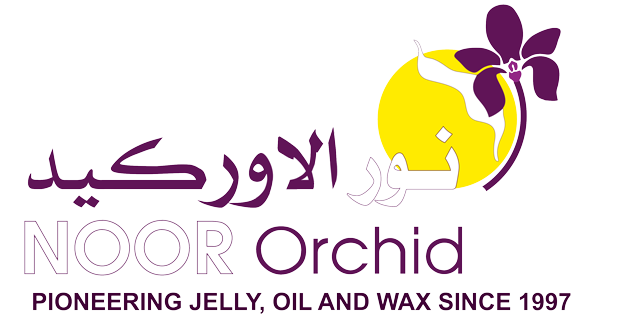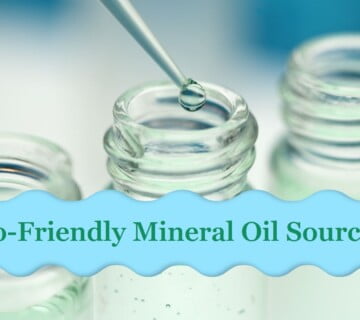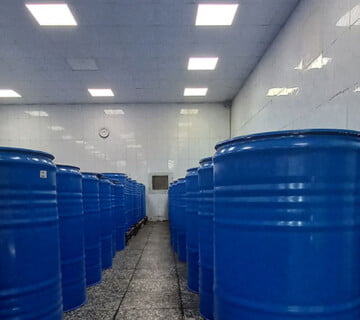Introduction:
Unlocking the Power of Paraffin Oil
In the vast and ever-evolving world of industrial and consumer products, there is often an unsung hero that quietly enables the functionality and performance of the items we use daily. That unsung hero is paraffin oil, a versatile petroleum-derived compound that plays a crucial role in a diverse array of applications, from personal care to industrial lubricants.
Whether you’re a procurement manager, product formulator, or simply curious about the inner workings of the products you use, this article will provide you with a detailed understanding of paraffin oil and its transformative impact on everyday life.
What is Paraffin Oil?
Understanding the Basics of Paraffin Oil
Paraffin oil, also known as mineral oil or liquid paraffin, is a clear, odorless, and colorless liquid derived from the distillation of petroleum. It is a member of the broader family of paraffin-based compounds, which includes waxes, greases, and other petroleum-derived products.
The Refining Process: Extracting Paraffin Oil
The production of paraffin oil begins with the extraction of crude oil from the earth’s reserves. This crude oil is then subjected to a series of refining processes, including distillation, hydro treatment, and dewaxing, to produce the desired paraffin oil specifications.
During the distillation process, the crude oil is heated and vaporized, allowing the different components to be separated based on their boiling points. The paraffin oil fraction is then further refined through hydrotreatment, which involves the removal of impurities and the stabilization of the oil’s molecular structure.
The final stage of the refining process is dewaxing, where the paraffin wax content is reduced to achieve the desired viscosity and pour point characteristics of the paraffin oil. This step ensures that the final product meets the stringent quality and performance standards required for various applications.
Grades and Specifications of Paraffin Oil
Paraffin oil is available in a range of grades and specifications, each tailored to meet the unique requirements of different industries and applications. Some of the key factors that determine the grade of paraffin oil include:
Viscosity
Paraffin oils can range from low-viscosity, thin oils to high-viscosity, thick oils, depending on the intended use.
Purity
The level of refining and purification determines the purity of the paraffin oil, with higher-purity grades suitable for sensitive applications like pharmaceuticals and cosmetics.
Color
Paraffin oils can vary in color from clear and colorless to slightly amber or yellow, with the color often indicating the level of refining and impurity removal.
Density
The density of paraffin oil is typically within the range of 0.8 to 0.9 g/cm³, with variations depending on the specific grade and application.
Manufacturers and suppliers of paraffin oil work closely with their customers to ensure that the right grade and specifications are selected to meet the unique requirements of each application.
Applications of Paraffin Oil
Exploring the Versatility of Paraffin Oil
Paraffin oil is a remarkably versatile compound, finding applications across a wide range of industries and product categories. From personal care to industrial lubricants, this unsung hero plays a crucial role in the functionality and performance of the items we use every day.
Personal Care and Cosmetics
One of the primary applications of paraffin oil is in the personal care and cosmetics industry. Due to its emollient, occlusive, and non-greasy properties, paraffin oil is a key ingredient in a variety of products, including:
Skin Care
Paraffin oil is used in the formulation of moisturizers, creams, and lotions to provide hydration, protect the skin’s barrier, and improve the appearance of dry or damaged skin.
Hair Care
Paraffin oil is often found in hair care products like shampoos, conditioners, and styling aids, where it helps to nourish, protect, and add shine to the hair.
Lip Care
Paraffin oil is a common ingredient in lip balms, glosses, and treatments, providing a protective barrier and a smooth, glossy finish.
Makeup
Paraffin oil is used in the production of various makeup products, such as foundations, concealers, and lipsticks, where it helps to create a smooth, long-lasting application.
Pharmaceutical and Medical Applications of Paraffin Oil
The purity and safety profile of paraffin oil makes it a valuable ingredient in the pharmaceutical and medical sectors. Some of the key applications include:
Ointments and Creams
Paraffin oil is used as a base in the formulation of various ointments, creams, and topical medications, where it serves as an emollient and carrier for active ingredients.
Laxatives
Liquid paraffin is used as a gentle, effective laxative to help alleviate constipation by lubricating the digestive tract.
Protective Barriers
Paraffin oil-based products are used to create protective barriers on the skin, helping to prevent further injury and facilitate wound healing.
Industrial and Automotive Applications
Beyond the personal care and pharmaceutical sectors, paraffin oil finds numerous applications in the industrial and automotive realms, including:
Lubricants and Greases
Paraffin oil is a key component in the formulation of various lubricants, greases, and metalworking fluids, where it helps to reduce friction, wear, and corrosion.
Electrical Insulation
Paraffin oil is used as an insulating medium in transformers, cables, and other electrical equipment, protecting against electrical discharge and environmental factors.
Metalworking Fluids
Paraffin oil-based metalworking fluids are used in a variety of machining and metal-forming processes, where they act as coolants, lubricants, and corrosion inhibitors.
Rust Prevention
Paraffin oil-based products are often used as rust preventatives, forming a protective barrier on metal surfaces to prevent corrosion.
Other Applications
Paraffin oil’s versatility extends beyond the personal care, pharmaceutical, and industrial sectors, with applications in a diverse range of industries, including:
Textile Processing
Paraffin oil is used in the textile industry as a lubricant, softener, and finish for fabrics and yarns, enhancing their properties and performance.
Candle Making
Paraffin oil is a key ingredient in the production of paraffin wax-based candles, providing a clean-burning, long-lasting flame.
Food and Food Processing
While not directly consumed, paraffin oil is used in various food processing applications, such as release agents, coatings, and processing aids.
Household and Consumer Products
Paraffin oil can be found in a variety of household and consumer products, including polishes, cleaners, and paints, where it serves as a lubricant, carrier, or protective agent.
The wide-ranging applications of paraffin oil demonstrate its importance as a versatile and indispensable component in the manufacturing of countless everyday products we rely on.
Industry Trends and Developments
Evolving Demands and Innovative Solutions
As the global market for paraffin oil continues to evolve, manufacturers and suppliers are adapting to changing customer requirements and industry trends. From sustainability initiatives to technological advancements, the paraffin oil landscape is constantly in flux, presenting both challenges and opportunities for industry players.
Sustainability and Environmental Consciousness
One of the key trends shaping the paraffin oil industry is the growing emphasis on sustainability and environmental responsibility. Consumers and regulatory bodies are increasingly demanding more eco-friendly and sustainable products, putting pressure on manufacturers to adopt greener practices and formulations.
Case Study
Navid Noor Polymer’s Anti-Bacterial and Anti-UV Paraffin Oil
Navid Noor Polymer, a leading manufacturer of paraffin oil and other petroleum-based products, has developed a groundbreaking anti-bacterial and anti-UV paraffin oil. This innovative formulation combines the versatile properties of paraffin oil with the added benefits of antimicrobial and UV-protection capabilities, making it a game-changer in the personal care and pharmaceutical industries.
Through extensive research and development, Navid Noor Polymer’s team of experts was able to create a paraffin oil that not only offers superior moisturizing and protective properties but also helps to safeguard against harmful microorganisms and UV radiation. This specialized product has been widely embraced by clients who seek cutting-edge solutions to enhance the performance and efficacy of their formulations.
The success of Navid Noor Polymer’s anti-bacterial and anti-UV paraffin oil highlights the importance of innovation and the ability to anticipate and address the evolving needs of the market. By investing in the development of specialized products, manufacturers can differentiate themselves and provide unique value to their customers, solidifying their position as industry leaders.
Globalization and Changing Supply Chains
The paraffin oil industry is also influenced by the broader trends of globalization and the shifting dynamics of supply chains. As manufacturers and suppliers seek to expand their reach and serve a diverse global customer base, they must navigate the complexities of international trade, logistics, and regulatory environments.
Case Study
Navigating Global Supply Chains: Navid Noor Polymer’s International Expansion
Navid Noor Polymer, with its headquarters in Iran, has successfully navigated the challenges of global expansion, establishing a strong presence in over 52 countries and 7 international offices. The company’s commitment to customer-centricity and its ability to adapt to local market needs have been key drivers of its international success.
By building a comprehensive network of partners and distributors, Navid Noor Polymer has been able to deliver its high-quality paraffin oil products to clients worldwide, ensuring timely and reliable supply. The company’s global reach has also enabled it to better understand the diverse needs and preferences of its customers, allowing it to develop customized solutions that cater to their specific requirements.
Navid Noor Polymer’s global expansion strategy serves as a testament to the importance of adaptability, strategic partnerships, and a deep understanding of local market dynamics in the ever-evolving paraffin oil industry. As manufacturers and suppliers seek to expand their footprint, they must be prepared to navigate the complexities of international trade, regulatory frameworks, and shifting customer preferences.
Emerging Markets and Changing Demand Patterns
The paraffin oil industry is also influenced by the growth and development of emerging markets, particularly in Asia and Africa. As these regions experience economic expansion and rising consumer purchasing power, the demand for paraffin oil and its derivative products is experiencing a corresponding surge.
The Future of Paraffin Oil: Trends and Opportunities
Navigating the Evolving Landscape
As the paraffin oil industry navigates the dynamic landscape shaped by sustainability, technological advancements, and changing global dynamics, manufacturers, and suppliers must be prepared to adapt and seize the opportunities that arise.
Sustainable and Eco-Friendly Formulations
The growing emphasis on environmental responsibility will continue to drive innovation in the paraffin oil industry, with manufacturers focusing on developing more sustainable and eco-friendly formulations. This may include the use of renewable feedstocks, the implementation of energy-efficient manufacturing processes, and the incorporation of biodegradable or recyclable components.
Opportunity: Partnering with Eco-Conscious Customers
By aligning their products and manufacturing practices with the sustainability goals of their customers, paraffin oil manufacturers can position themselves as preferred suppliers, solidifying long-term partnerships and gaining a competitive edge in the market.
Specialization and Customization
The demand for specialized and customized paraffin oil products is expected to rise as industries become more specialized and customer requirements become more nuanced. Manufacturers that can quickly adapt and develop tailored solutions will be well-positioned to capture a larger share of the market.
Opportunity: Investing in R&D and Innovation
By dedicating resources to research and development, paraffin oil manufacturers can stay ahead of the curve, anticipating market needs and developing cutting-edge products that address the specific challenges faced by their customers.
Expanding Global Reach and Partnerships
As the world becomes increasingly interconnected, the ability to navigate global supply chains and establish strategic partnerships will be crucial for paraffin oil manufacturers seeking to expand their reach and serve a diverse customer base.
Opportunity: Leveraging Global Distribution Networks
By building a comprehensive network of international partners and distributors, paraffin oil manufacturers can enhance their global presence, improve supply chain resilience, and better serve the needs of customers around the world.
Emerging Market Growth and Demographic Shifts
The continued economic development and rising purchasing power in emerging markets, particularly in Asia and Africa, will drive significant growth in the demand for paraffin oil and its derivative products. Manufacturers must be prepared to adapt their strategies and offerings to cater to the unique preferences and requirements of these dynamic markets.
Opportunity: Tailoring Products to Local Market Needs
By deeply understanding the specific needs and preferences of customers in emerging markets, paraffin oil manufacturers can develop tailored products and solutions that resonate with local consumers, strengthening their position in these high-growth regions.
Conclusion: Embracing the Future of Paraffin Oil
As we have explored in this comprehensive guide, paraffin oil is the unsung hero that quietly enables the functionality and performance of countless everyday products. From personal care and pharmaceuticals to industrial lubricants and household items, this versatile petroleum-derived compound plays a critical role in the modern world.
The paraffin oil industry is constantly evolving, shaped by the shifting demands of sustainability, technological advancements, and changing global dynamics. Manufacturers and suppliers must be prepared to adapt, innovate, and seize the opportunities that arise in this dynamic landscape.
By investing in sustainable manufacturing practices, developing specialized and customized products, expanding their global reach, and catering to the needs of emerging markets, industry players can solidify their position as trusted partners and market leaders. The future of paraffin oil is bright, and those who embrace the challenges and opportunities ahead will be well-positioned to thrive in the years to come.
If you’re a procurement manager, formulation specialist, or business owner seeking a reliable and innovative paraffin oil supplier, we encourage you to explore the capabilities and offerings of the industry-leading manufacturers featured in this guide. Contact them directly to learn more about their specific products, customization options, and global distribution capabilities. With their expertise and commitment to excellence, you can be confident in finding the perfect solution to meet your unique business needs.

This is Kamran Malekian working in the petroleum jelly manufacturing industry for Navid Noor Company since 2013 I am eager to make content in this industry and have a good impact on professional users and people using cosmetic and pharmaceutical products.











No comment